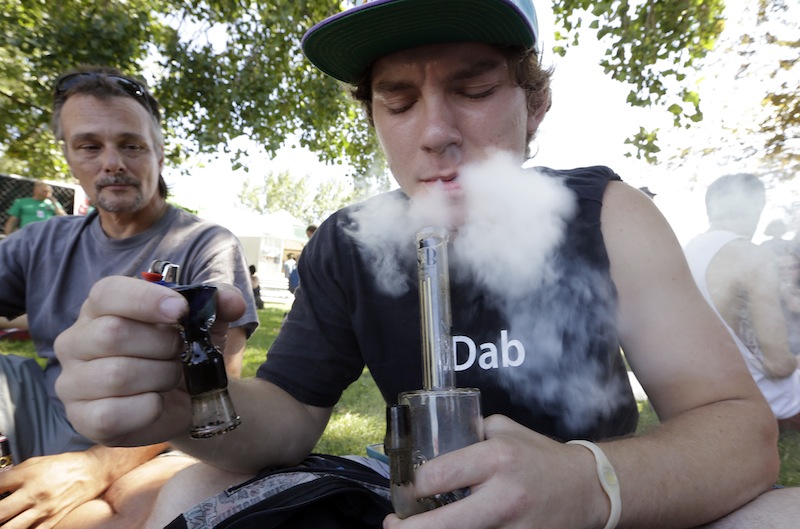Colorado officials say they believe they have “tacit approval” from the U.S. Justice Department to implement voter-approved laws legalizing marijuana.
“We seem to have tacit approval at this point,” State Sen. Pat Steadman, a Democrat who co-sponsored two bills establishing the state’s regulations for recreational marijuana, told TPM in a phone interview Tuesday.
Another source directly involved in conversations with Justice, who asked not to be named to speak freely about private discussions, agreed with that characterization.
“They’re well aware of what we’ve been up to,” the source told TPM. “I do think that it’s fair to say that we have their tacit approval at this point.”
The source stressed that Justice had not explicitly said that legalization would be allowed to continue. But the department has been routinely updated as the state has passed legislation and rules setting up a retail industry for marijuana and has not told state authorities to stop their implementation. Retail operations are scheduled to open in January under the new law.
Since voters in Colorado and Washington approved marijuana legalization last November, officials have been waiting for the Justice Department to signal what it would do. The state laws directly contradict the federal Controlled Substances Act, which outlaws marijuana and other narcotics for any use nationwide. There have been few public comments on the issue from the Justice Department, so the Colorado officials’ statements are some of the first public indications of how the federal government will ultimately handle the issue.
Federal officials declined to comment. “The department continues to review the initiatives in Washington and Colorado,” Justice Department spokesperson Allison Price said in a statement to TPM.
Both states have published tomes of regulations for retail sales and other rules for recreational marijuana over the last year. Officials in Washington state, which will begin accepting retail license applications in November, wouldn’t go so far as to call the Justice Department’s position “tacit approval,” but agreed that they had not been instructed to stop implementation.
“They’ve not indicated that they’re going to try to stop us,” David Postman, a spokesman for Washington Gov. Jay Inslee (D), told TPM in a phone interview. “We’re operating as if this is is a go, and we haven’t been told otherwise.”
Officials in both states said that Justice Department officials have been primarily concerned with two issues in their discussions: Preventing marijuana from crossing state lines and keeping it away from minors.
U.S. Attorney General Eric Holder said back in February that the Justice Department was in the “last stages” of reviewing the initiatives and guidance should be coming “relatively soon.” But there has been no further information from the department since then.
Last December, after the legalization initiatives had been passed, President Obama told ABC News in an interview that prosecuting recreational marijuana users in states that had legalized it would not be a top priority for his administration.
“We’ve got bigger fish to fry,” Obama said. “It would not make sense for us to see a top priority as going after recreational users in states that have determined that it’s legal.”
Legalization advocates have also taken the Justice Department’s silence and the president’s comments as an indication that legalization won’t be stopped.
“If they were really going to take action and stop states from implementing these laws, we would have heard about it by now,” Dan Riffle, director of federal policies at the Marijuana Policy Project, told TPM.
For the 18 states that have legalized marijuana for medical use only, the Justice Department has advised federal authorities not to interfere with people and businesses in compliance with state law. But that hasn’t stopped federal authorities from conducting raids on medical marijuana operations that they allege are in violation of state and federal law, such as a series of raids in Washington state last month.









